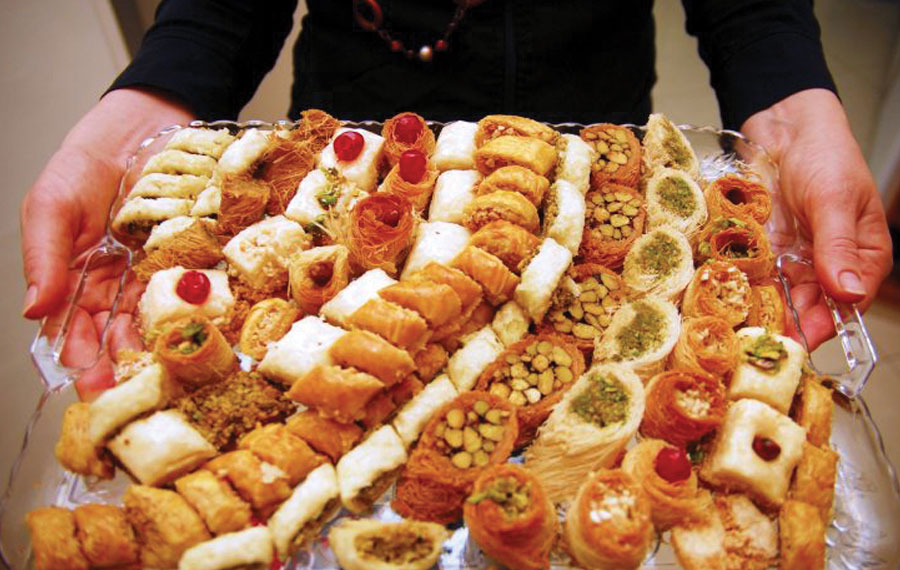
David Suissa just called. He is the editor of the Journal. He is deciding what will be on the cover of this edition. Well, what’s on the cover? Mimouna is an option, he says but so is the series of bombings in Sri Lanka; he’s deciding. Great, I think to myself (but don’t tell him). There is a lot I can write about Mimouna. I have data, I have a theory, I will make this an easy week of writing. Why not enjoy Pesach by having an easy week?
Mimouna is one of the examples I use in my recent study and book about the changing characteristics of Israeli Judaism (“#IsraeliJudaism: A Portrait of a Cultural Revolution,” co-written with professor Camil Fuchs, under the auspices of the Jewish People Policy Institute). It serves to demonstrate how circumstances alter traditions. In the case of Mimouna, it is the circumstances of Jews from different backgrounds living side by side. Everyone sees everyone else, everyone learns from everyone else and everyone imitates everyone else. Sometimes by choice, sometimes subconsciously.
This process is evident in the waning of some “ethnic” traditions, such as the tradition of refraining from eating kitniyot during Passover (see graph, right). It’s also evident in the spread of “ethnic” traditions. While Ashkenazic Jews are losing the ethnic battle over kitniyot (probably for their own good), another group is winning the battle over another ethnic custom: Mimouna. This festival ceased being merely an “ethnic” custom long ago. It is a national holiday. So much so, that in 2016, then-Environment Minister Avi Gabbay decided to exempt Mimouna (like Independence Day) from the general ban on making noise after 11 p.m. Mimouna celebrations, which include late-night ululations, received an official stamp of approval.
Mimouna is an end-of-Passover tradition that was imported to Israel by a minority. A “marginal, sectarian” festival that received the “status of a national holiday, partly religious, partly civil,” as Rachel Sharabi wrote in a book on the subject. Moroccan immigrants celebrated it in their homes until someone had the idea to take it public in the mid-1960s. Initially a few hundred came, then thousands, then tens and hundreds of thousands, and with them the politicians, who understood the electoral power represented by the revelers.
“Moroccan immigrants celebrated Mimouna in their homes until someone had the idea to take it public in the mid-1960s.”
At some point, the celebrations turned mainstream in a way that made some keepers of the ethnic traditions uncomfortable. These people — a minority — started complaining of too quick a switch “from the erasure of a culture to its appropriation.” They argued that at first Israel pushed the Moroccan immigrants and their culture to the margins, but then was seduced by the smell of mufletot — the traditional Mimouna pancakes — to appropriate this part of the culture.
Around half a million Moroccan immigrants, whether first- or second-generation, live in Israel today. This corresponds with our finding that one-tenth of Jews in Israel (9%) say they “host Mimouna at home.” Around half of the hosts also “wear traditional dress” on Mimouna (4%). These are the numbers that represent a traditional “ethnic” holiday. Mimouna, however, requires not only hosts but also guests. In Morocco, Jews used to invite their Muslim neighbors to Mimouna. In modern Israel, they invite their Jewish compatriots from other communities, who are not fortunate enough to have such a beautiful festival of their own.
Therefore, almost 4 in 10 Israelis attend Mimouna (38%). More than one quarter of Ashkenazic Jews report that they attend Mimouna (27%). A similar proportion of Jews from the former Soviet Union report the same (28%). That’s not to mention Mizrahi Jews (48%) and Israelis from mixed families (43%). A simple calculation of hosts and guests reveals that almost half of Israel’s Jewish population celebrates Mimouna.
An “ethnic” holiday? Prime Minister Benjamin Netanyahu told his Mimouna hosts in 2017 that what had begun as a solely Moroccan tradition “has turned into a holiday for all the ethnic groups.” You can always trust a good politician to have a good sense of what is popular and no longer sectarian. So yes, Netanyahu was right: Mimouna is an Israeli-Jewish holiday. I am a Jew whose ancestors came from Poland, Galicia and Lithuania. And yet, Mimouna is mine.
Shmuel Rosner is senior political editor. For more analysis of Israeli and international politics, visit Rosner’s Domain at jewishjournal.com/rosnersdomain.






















 More news and opinions than at a Shabbat dinner, right in your inbox.
More news and opinions than at a Shabbat dinner, right in your inbox.